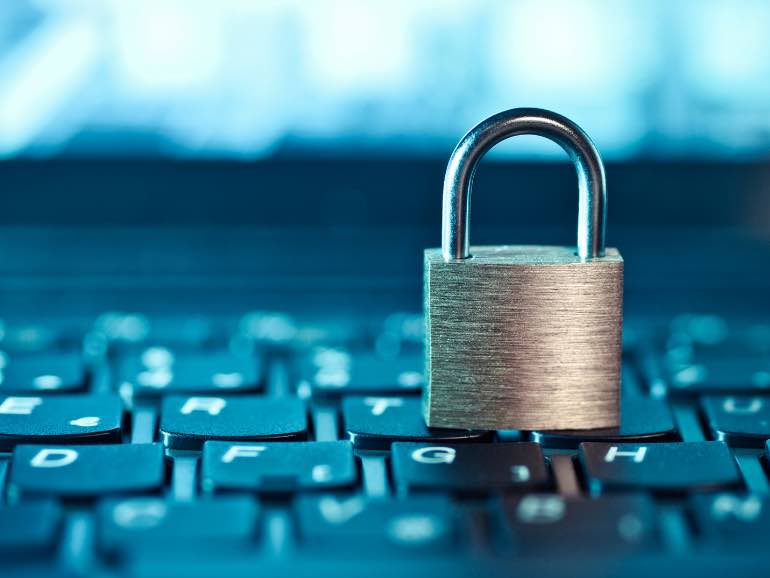The phrase any business owner most dreads hearing at the moment is probably, “data breach.” A data breach means you failed to protect your customers’ information and that you’re about to lose the trust of your clientele.
True, it seems like every major company has had a data breach in the past year, but while a big company can survive the PR nightmare, a small business often can’t.
Even worse, if the big boys can’t keep hackers out of their systems, how can a smaller company that’s operating on a shoestring hope to stay safe? It seems almost impossible.
Fortunately, avoiding some basic mistakes that companies of any size can make will help minimize the risk. Taking care of these won’t make you 100 percent safe, but it should make a data thief’s job harder.
So, let’s get started on protecting your business.
TRUSTING EMPLOYEES TOO SOON
Most small businesses have records that could be extremely valuable to anyone willing to commit identity fraud. Criminals know this, and the personal information of your customers could be worth more than an employee’s yearly salary.
Just because you trust someone enough to hire them doesn’t mean that you should give them an all-access pass to your networks. Work with your tech guys to set up layered access to your company’s records. People should only be able to see what they need to do their job.
Even something as simple as making your employees use Standard computer accounts keeps them from slipping data-stealing software onto your network or accidentally downloading it.
Similarly, if an employee’s job demands that they always have access to your customers’ sensitive information, then always do your due diligence. Background checks aren’t expensive, and I’ve already written about many great options.
Your employees won’t be offended if you explain your reasoning for giving them limited access or requesting a background check before revealing customer information to them.
USING OUTDATED SYSTEMS
The single easiest way for a hacker to get into a system is to slip in through a hole in your security. The way holes get there is when you use outdated software.
Several hacks in recent years have started when hackers found one computer at a company running old software and were able to break in. Once one computer falls, the rest go like dominoes.
That means keeping Windows, Office and Internet Explorer updated with the latest security fixes.
Then there are plugins like Adobe Flash, Adobe Reader and Java that hackers like to target. These need to be updated regularly, or even disabled if your employees don’t need them.
Then it goes without saying – but I’m going to say it anyway – that if you’re using computers with Windows XP or Office XP, stop right away. It has too many security holes to be safe in a business environment. It’s time to upgrade to Windows 7 or 8, and newer versions of Office.
Can’t afford new versions of Office?
Be sure to designate either yourself or someone else in your company to man the security threat “crow’s nest.” Keep an eye out for security updates, reports of email viruses and any other number of threats to your company.
MAKING UNSECURED BACKUPS
Let me start this section by saying that backups are a critical part of any business. If you aren’t backing up your company records, then drop everything and go do it now. You’re one hard-drive crash away from losing time, revenue and possibly your entire company.
Don’t just run out and buy some external hard drives. You need an offsite solution that is both time-tested and trustworthy if you want true peace of mind. While many companies offer cloud-based data backup, you need the trust that can only come with an established name.
That’s why I’m proud to have a company like IDrive sponsoring my radio show.
With IDrive’s Universal Backup you can cover all of the operating systems including Windows, Mac OS, iOS, Android and Windows Mobile. Plus, you can take advantage of the social media backup tool, and create a safe archive for the posts, photos and videos you’ve shared on platforms like Instagram and Facebook.
Plans start at just $5.95 per month for 1TB of storage, which is less than your morning cup of coffee! And as a listener of my show, you can save even more!
This is a great option for small businesses that have a handful of employees. For larger businesses, IDrive has recently launched the Onsite Bare-Metal Disaster Recovery (BMR).
IDrive’s BMR offers 6 TB of storage, which allows you to create snapshots of your entire system, including application configurations. And, although the BMR provides you with local backup, it also offers up to 6 TB of cloud backup too.
Another advantage a remote system has over on-site backup is the theft angle. Any thief or sketchy employee can walk off with your external drive backup.
Even if your computer is password-protected, your backup probably isn’t. The thief can have full access to your files in seconds. Don’t let them.
I’m glad you’re taking your business security seriously.



